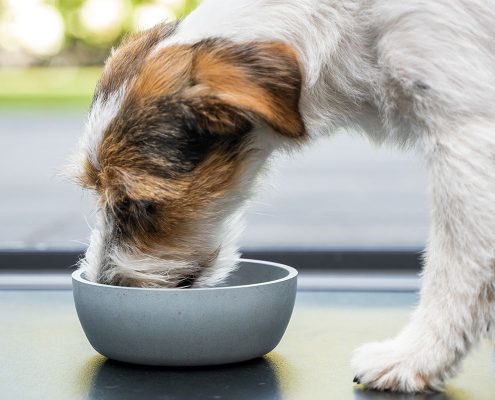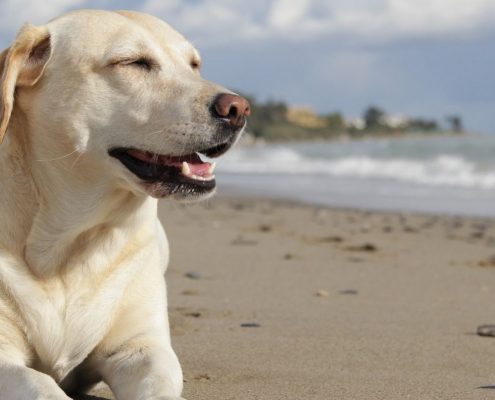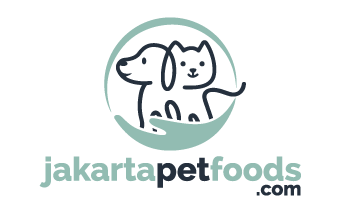Dog food high in meat and protein… |
necessary or not?

necessary or not?
A new trend has hit Europe from America: dog food with a high meat and protein content. Is it that good and necessary?
Many dog owners find the health of their four-legged friend increasingly important, which increases the demand for a healthy diet. We see a growing interest in high protein diets in both humans and animals. They base this on the hunter-gatherers’ concept of the Stone Age were men protein intake was high. That is why this trend often refers to the “paleo diet” or the “primal diet”.
We also see this trend in dog food, which reverts to the food of the ancestor of the dog: the wolf. The wolf’s natural diet has a high protein content of 52 percent. It is therefore thought that a high protein diet is also good for today’s dog. However, when humans started to build settlements and started farming, a new food source for the wolf emerged. Opportunistic wolves could scrape through the waste consisting of both animal and vegetable matter. They adjusted their diet. Today’s dogs have changed from the wolf by domestication. They are better able to digest starch and absorb glucose.
Our domestic dog is still a carnivore that needs certain essential nutrients such as proteins, which are important building blocks for the body. However, this does not mean that our dogs require very high protein levels. An adult dog has a minimum protein requirement of about 10 percent on a dry matter basis, according to the Nutrient Requirements of Dogs and Cats. The European Pet Food Industry Federation (FEDIAF) provides a guideline protein content between 18 and 21 percent for an adult dog. So-called high protein diets with a protein content of 30 percent or more exceed this guideline.
To date, no optimal protein content for has been established for dogs.
A “wolf-percentage” of 52 percent protein; at least 10 percent protein; a guideline between 18 and 21 percent protein; at least 30 percent as high protein … what is right? To date, no optimal protein content has been established for dogs. It has also not been established that a high protein diet gives results in better health.
The world population is growing. Feeding everyone requires raw materials for the production of food, such as grains and livestock. The production of animal proteins in particular has an impact on the environment. It requires a lot of energy, nutrition, space and water. It takes an average of 5 to 6 kilos of vegetable protein to produce 1 kilo of meat protein.
To produce 1 kilo of vegetable protein from grain, you require a land footprint of 20 m2. To produce 1 kilo of animal protein, from meat like for instance chicken, 35 m2 of land is needed. Nearly double the land surface. Beef requires even more space, namely 100 m2 (5 times the amount of land needed compared to plant-based protein). This has a negative effect on biodiversity, the diversity of life on Earth, and is at the expense of, for example, forests.
In addition, a lot of water is needed for the production of animal protein: 20 tons of water per kilo of meat. On the average, you need about a hundred times more water to produce 1 kg of animal protein compared to 1 kilogram of protein from grain.
Nitrogen as fertilizer is necessary to produce enough food. However, high amounts of nitrogen have consequences for the environment, resulting in climate change. Nitrogen pollution is among the top three threats to global biodiversity.
Where the demand for a high protein diet for dogs and thus the demand for animal ingredients increases, there will be an impact on the availability of animal proteins for humans.
Our dog needs animal proteins, that’s a fact. Prins pet foods are formulated in such a way that your dog gets all the important nutrients. We do not work with ultra-high protein diets, but look at the current needs of our pets. We only use high-quality animal and vegetable ingredients, from certified suppliers. This way we can guarantee an excellent quality and nutritional value of our dog food products. In the interest of the well-being of our pets, as well as our environment.
If you want to learn more about the different ingredients in our Prins dog and cat food products, we are happy to explain! Whether it is nutritional consultation or an in-depth scientific basis enquiry relating to our products: do not hesitate to contact us. The jakartapetfoods team strengthened by our affiliated Prins nutritionists and experts from the Netherlands are happy to assist you.
 https://jakartapetfoods.com/wp-content/uploads/2021/12/Prins-indonesia-jakartapetfoods1-header-pet-christmas-tips.jpg
800
1900
Maarten Smit
https://jakartapetfoods.com/wp-content/uploads/2020/11/LOGO-jakartapetfoods-website-header.png
Maarten Smit2021-12-23 00:50:422021-12-23 00:51:1010 Tips for a safe Christmas with your pet
https://jakartapetfoods.com/wp-content/uploads/2021/12/Prins-indonesia-jakartapetfoods1-header-pet-christmas-tips.jpg
800
1900
Maarten Smit
https://jakartapetfoods.com/wp-content/uploads/2020/11/LOGO-jakartapetfoods-website-header.png
Maarten Smit2021-12-23 00:50:422021-12-23 00:51:1010 Tips for a safe Christmas with your pet https://jakartapetfoods.com/wp-content/uploads/2021/09/Prins-Indonesia-jakartapetfoods-store-dog-cat-food.jpg
800
1900
Maarten Smit
https://jakartapetfoods.com/wp-content/uploads/2020/11/LOGO-jakartapetfoods-website-header.png
Maarten Smit2021-09-15 17:33:102021-09-15 18:14:05How to store your dog and cat food
https://jakartapetfoods.com/wp-content/uploads/2021/09/Prins-Indonesia-jakartapetfoods-store-dog-cat-food.jpg
800
1900
Maarten Smit
https://jakartapetfoods.com/wp-content/uploads/2020/11/LOGO-jakartapetfoods-website-header.png
Maarten Smit2021-09-15 17:33:102021-09-15 18:14:05How to store your dog and cat food https://jakartapetfoods.com/wp-content/uploads/2021/05/jakartapetfoods-prins-petfoods-obesity-dogs-article-header.jpg
799
1900
Maarten Smit
https://jakartapetfoods.com/wp-content/uploads/2020/11/LOGO-jakartapetfoods-website-header.png
Maarten Smit2021-05-05 17:17:332021-05-05 17:24:04Obesity in dogs
https://jakartapetfoods.com/wp-content/uploads/2021/05/jakartapetfoods-prins-petfoods-obesity-dogs-article-header.jpg
799
1900
Maarten Smit
https://jakartapetfoods.com/wp-content/uploads/2020/11/LOGO-jakartapetfoods-website-header.png
Maarten Smit2021-05-05 17:17:332021-05-05 17:24:04Obesity in dogsPasar modern Intermoda
BSD City
Jl Raya Serpong
Tangerang
Banten, 15345 INDONESIA
WA: (0813) 8959 7585
E: info@jakartapetfoods.com

 How to get rid of skin problems with your cat
How to get rid of skin problems with your cat